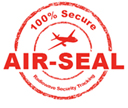
Redirnet
Emergency Responder Data Interoperability Network
Over the past 5 years Ardaco took key roles in Projects SECRICOM and FREESIC engaging significantly with a wide range of public safety officers across the EU. A benefit of this engagement has been the recognition that in addition to agency interoperability of communications a pressing need exists for agency interoperability of additional IT systems such as databases, sensor systems and cameras. REDIRNET provides a framework for addressing this need with detailed mapping of user preferences and related legal requirements using innovative technologies.
REDIRNET will provide a decentralized framework for interoperability for first responders’ systems based on a public meta-data gateway controlled by the agencies themselves via a REDIRNET socio-professional web. Agencies will be able link up to partner agencies of their choice and operational need; they will also be able to manage the scope of such interoperability. Inter-operating agencies will need only to develop one gateway (to REDIRNET) to reach multilateral interoperability. This will be leading to a cost effective solution.

SECRICOM
Seamless Communication for Crisis Management
Ardaco’s biggest completed research project – SECRICOM, was a collaborative research project aiming at development of a reference security platform for EU crisis management operations with two essential ambitions:
1. Solve or mitigate problems of contemporary crisis communication infrastructures (Tetra, GSM, Citizen Band, IP) such as poor interoperability of specialized communication means, vulnerability against tapping and misuse, lack of possibilities to recover from failures, inability to use alternative data carrier and high deployment and operational costs.
2. Add new smart functions to existing services which will make the communication more effective and helpful for users. Smart functions will be provided by distributed IT systems based on an agents’ infrastructure.
Ardaco has built up a consortium of 13 partners with the required experience to cover all the aspects of platform and communication security, resilience, availability and new state-of-the-art features.
Key inputs for the SECRICOM project idea were provided by the ESRAB (European Security Research Advisory Board) members and BAPCO (the British Association of Public Safety Communications Officers).
SECRICOM development is focused on Ardaco crisis management solutions. Project results were demonstrated in integrated fashion and user-plausible context.
FP7-SEC-2007-1, funded by European Commission, Project ID 218123

Freesic
Free Secure Interoperable Communications
FREESIC is a collaborative research project discovering a solution that will allow highly secure and cost effective interoperability between communication infrastructures over the entire Europe. Ardaco is the project coordinator of 9 partners and 5 associated partners is. FREESIC has been inspired by legal, organizational and operational barriers the consortium has encountered during its previous activities.
Existing interoperability solutions such as gateways are the right approach and will simplify FREESICs adoption and in return FREESIC will open broader possibilities for them. It will be operated free-of-charge and will offer open source gateway, documentation and operational guidelines for others to use. The system should motivate end users outside the consortium to request the integration from their system vendors or integrators.
The architecture will take into account on-going standardization research (e.g.: NCOIC Interoperability Framework) to reduce the integration time and costs. The integration process will be simple; the system integrator takes the gateway and modifies it as needed. The gateway remains the property of the integrator. The integrators do not have to worry about disclosing any know-how or information. The communication between gateways will be end-to-end encrypted and the gateway will be under full control of end user to avoid security concerns.
FP7-SEC-2011-1, funded by European Commission, Project ID 285205

RP-KOM
Technology research for the management of business processes in heterogeneous distributed systems in real time with the support of multimodal communication
The project is realised in cooperation with Institute of Informatics, Slovak academy of sciences. Activities of the project deal with the research of obstacles in the implementation of progressive distributed systems for the business processes management in mobile environment and with proposals to overcome them. The advanced possibilities of new mobile devices and communication technologies will be utilized to automate the processes. The automated decision making systems will help to reduce the need for user interaction and thus increase the effectiveness of process management where the human factor is the most common bottleneck. After the realisation of project activities there will be new possibilities for the development of specific applications in subsequent projects with the aim of deployment at customers. The appropriate illustrative example of use is logistics area – coordination of goods traffic through the functions of mobile communication. The project outputs will create potential for the development of advanced technologies in the area of transport coordination and so they will have positive impact on effectiveness and decrease of goods traffic harmful effects into air and environment as well.
As the part of project the research and education centre for technology research in the area of management of business processes in heterogeneous distributed systems in real time with the support of multimodal communication will be created. It will be established as strategic partnership between academic and business sector with the aim to raise potential for the transfer of outputs into use.
This project is co-financed by the European Regional Development Fund, ITMS code of the project: 26240220064

Smartcode
Smart Control of Demand for Consumption and Supply to enable balanced, energy-positive buildings and neighbourhoods
Research project is focused on energy management in Smart Energy Grids at local level like buildings and neighborhoods. Intelligent energy management combines traditional sources of energy together with local energy sources and storages like wind and solar energy or hybrid car and electro car batteries.
Today, such energy management requires fine grained infrastructure and expensive hardware. This often limits applicability to industrial and commercial sector. Together with development of new methods for energy management, one of the goal is to develop inexpensive (< 3€) hardware and software implementation platform which can be used by 3rd party developers and manufacturers.
Ardaco role in project includes security analysis and implementation of security layer for used protocols with respect to existing restrictions like computational power, energy usage, bandwidth and availability of PKI infrastructure. Another important aspect is lifetime of keys and certificates together with possibility to upgrade algorithms, because expected lifetime of Smart Energy Devices in years or dozen of years.
FP7-SEC-2007-1, funded by European Commission, Project ID 218123

PriMeBits
Printable memory solutions for sensor, ID and media applications
The aim of finished FP7 project was to develop new low-voltage large-area printable electronic memory devices that can be utilized in new and existing markets of printable smart tags for sensor, ID and media applications and electrical sintering. Secondly to develop printable materials (such as ferroelectric nanoparticle-based inks) that also find applications outside the scope of the project such as in compact antennas and in tuneable capacitors for RFID. And finally to develop further the application scenarios, end-user concepts, business models and value chains for smart-package and smart-document applications utilizing the project results.
Ardaco role was in development of security application scenarios, end-user concepts, business models and value chains for smart-package and smart-document applications utilizing the project results.
FP7-ICT-2007-1, funded by European Commission, Project ID 215132

CHOSeN
Cooperative Hybrid Objects Sensor Networks
The research project CHOSeN’s goal was to develop application-specifically adaptable communication technologies enabling the real deployment of smart wireless sensor networks in large-scale, performance-critical application fields like the automotive and the aeronautic. Ardaco’s focus was on security mechanisms and protocols research that provide reasonable level of confidentiality, privacy, integrity and authenticity in a very constrained environment.
Wireless sensor network is one of the most difficult environments to secure, the nodes must be small and low cost, have very limited capabilities in terms of computing power, available memory, power drain and in most cases have no connectivity to external world (Internet).
Project results were demonstrated on use cases from automotive and aerospace industries.
FP7-SEC-2007-2, funded by European Commission, Project ID 224327

AIR-SEAL
An Innovative RFID Security SEAL for the Aerospace Industry
The aim of this research and development project was to develop a second generation RFID security seal, capable of monitoring the integrity of an aircraft galley trolley or transportation vehicle. The R&D work is performed by academia while SME are consultants of their work. It seeks to enable the automatic sealing and inspections of galley trolleys, while improving their security by utilising a digital, anti-tamper volumetric sensor.
The Ardaco role was to consult the design of the communication and security protocols for Air Seal. Further to validate the new protocols and implement an operational security database on existing secure ICT servers. During field trials Ardaco has validated the databases performance.
FP7-SME-2008-1, funded by European Commission, Project ID 23171

RACE
RFID Community Network – Raising Awareness and Competitiveness in Europe
RACE project was a thematic network supported by the EC and leading European stakeholders of RFID technologies. Its vision was to provide a network of excellence that creates opportunities and increases the competitiveness of EU member states in the area of RFID thought leadership, development and implementation.
Ardaco role was to consult the security aspects of RFID technology and to support the RFID policy development in Slovakia and in Central Europe.
CIP-ICT-PSP-2008-2, funded by European Commission, Project ID 235542